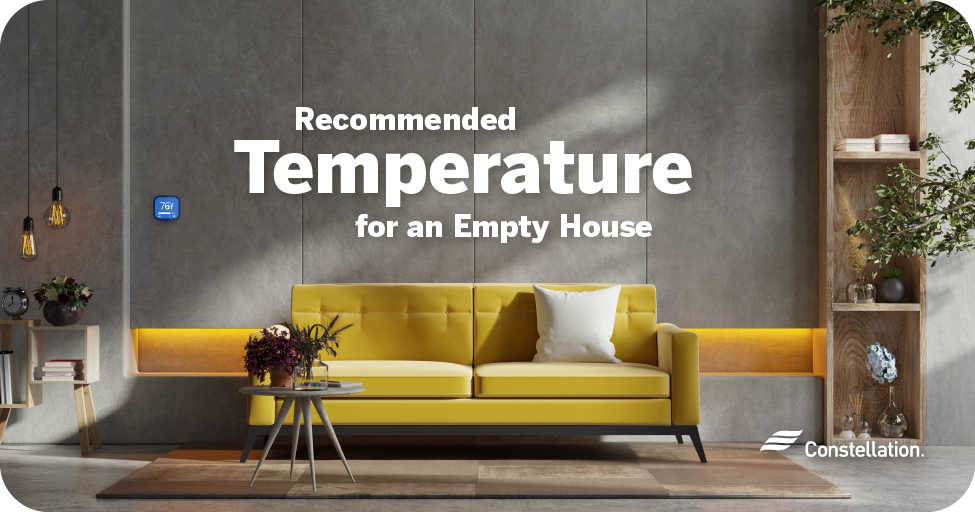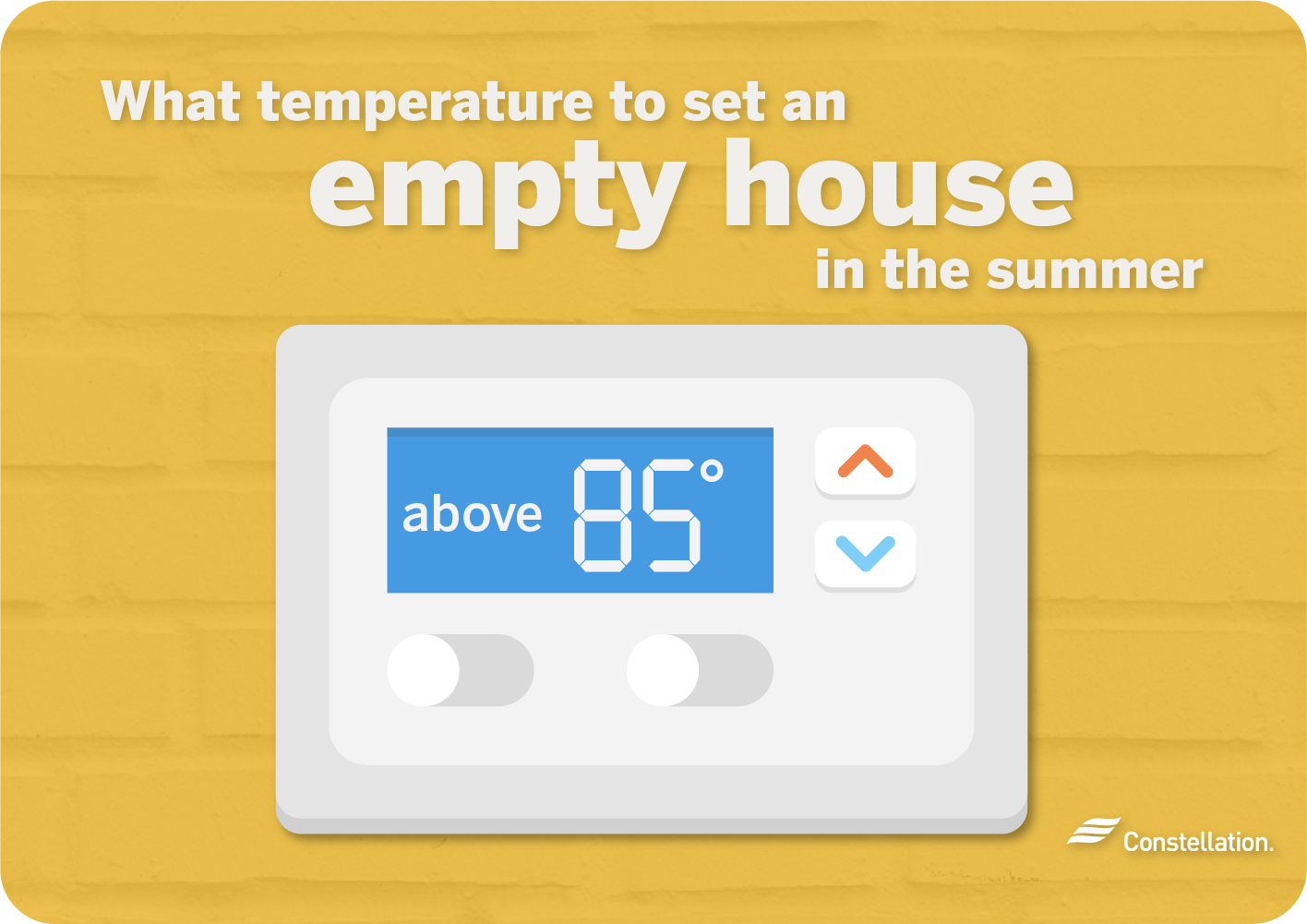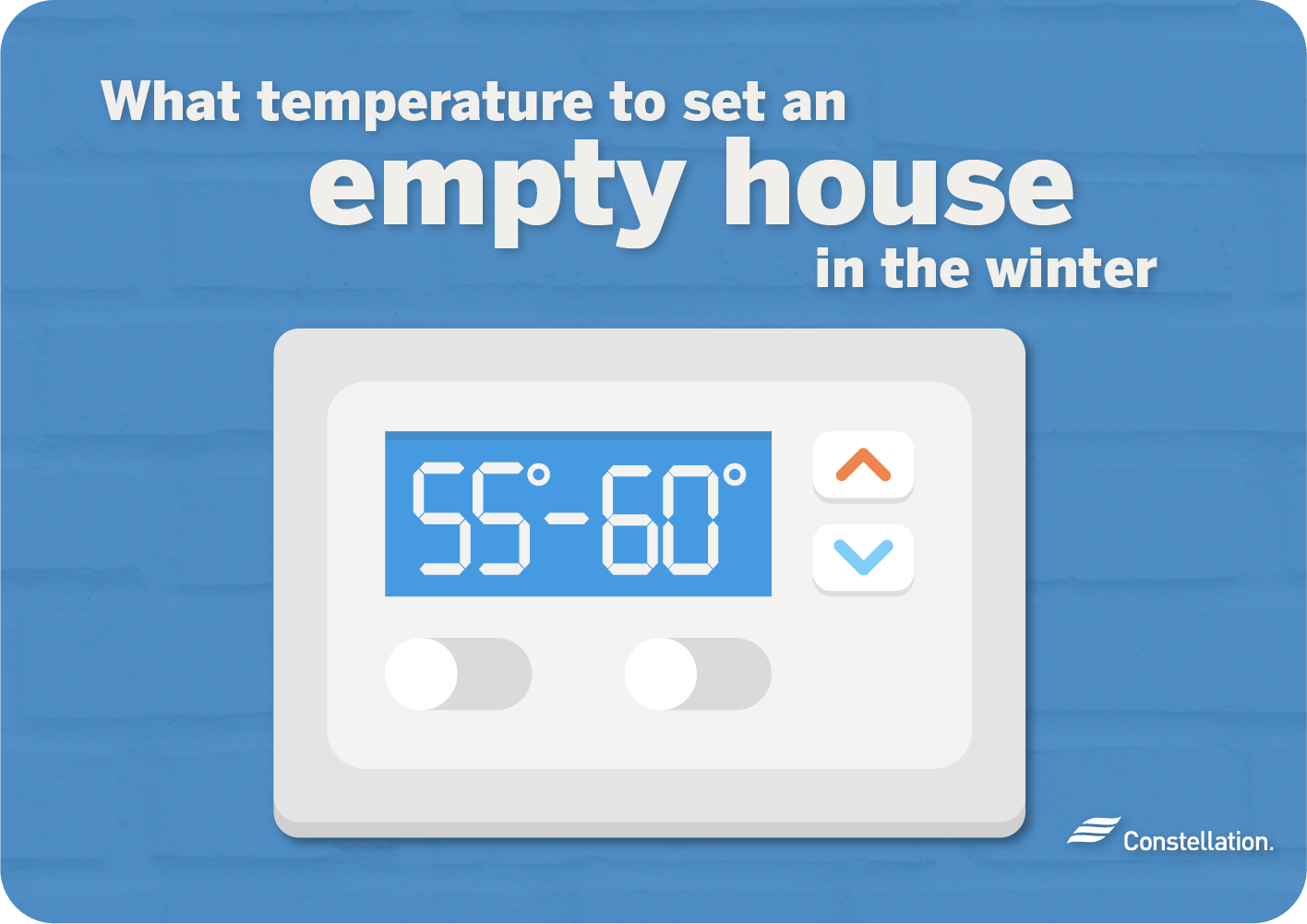
- Category:
Energy Efficiency -
Last updated:
September 3, 2024
Recommended Temperature for an Empty House in Summer & Winter
You might be leaving home for a vacation. Or perhaps you are a snowbird, leaving your house vacant for the months of winter and your place in the sun empty over the summer.
You might wonder what temperature to leave a vacant house in summer or winter. If you are leaving a house empty, should you leave the heat on or continue to run the air conditioner?
Whether you should turn off the A/C or turn off the heat when not home will depend on the specifics of your climate, the construction of your house and what you keep inside. You’ll want to balance those considerations against the cost of cooling and heating an empty house.
What is the best temperature for an empty house?
To answer the question of what temperature should I leave the heat when away, you should consider your situation. If you are going to be gone for a week or two, turning off your heating and cooling system is best.
That advice comes with some conditions. If you have plants or belongings like electronics, artwork or textiles that are sensitive to severe changes of temperature, you may want to leave the heat or air conditioning on. If you live in a climate that gets extremely cold, freezing pipes are a concern. High humidity can lead to mold in a house without climate control. It will cost you money, but setting a reasonable temperature range on your HVAC might save you over the long run.
What temperature to leave a vacant house in summer

What temperature to leave your house when on vacation in the summer is a matter of some debate. Check the weather before you go to see if a heat wave or high humidity is expected. If you have a smart thermostat, you can make adjustments while away, taking some of the guesswork out of your planning.
What temperature to leave the house when on vacation
What temperature to leave a vacant house in summer while on vacation can range. Most experts suggest the best thermostat temperature settings in summer are above 85°F, which will still protect your belongings against extreme heat. Running the A/C will reduce humidity and lower the risk of mold growth.
Why turning off the A/C doesn’t always save energy for the short-term
You may think that turning off your A/C is one way to save energy in the summer. Since you are not there to suffer through the heat, you might be tempted to turn the A/C off. That may not, however, be the best approach to saving energy in the summer, depending on how long you will be gone. Without A/C, your whole house will heat up, not just the air in the rooms. When you return, your A/C will have to work harder to bring the inside temperature to a comfortable level.
Short-term vs. long-term vacancy recommendations
If you plan to be gone for months, it is worth it to leave the A/C off if you don’t have belongings to worry about and if humidity is not a problem. If you’re going to be gone for a short period of time, set your A/C temperature to the recommended 85°F, which will protect your belongings while still saving energy.
Other cost-effective ways to decrease energy use in summer while away
What temperature to leave the house when on vacation is one aspect of saving energy. You can decrease energy use in the summer while you are away by using some of the tips for how to keep your house cool without A/C. What temperature to set A/C when on vacation can be a little higher if you use these other methods for stabilizing and lowering the temperature in your home.
- Add ceiling fans, setting them to turn counterclockwise to circulate air
- An attic fan can draw cool air from lower floors to upper floors
- Close the drapes to minimize the heating effects of the sun
- Add reflective film to your windows to help keep the heat from the sun out of rooms
- Be sure your insulation is adequate
- Be sure your A/C is running at tip-top efficiency, especially with clean filters
What temperature to leave an empty house in the winter

The question of what temperature should I leave the heat at when away in the winter is an important one. Severe cold can be devastating when it comes to your plumbing. A frozen pipe can burst, potentially causing thousands of dollars of damage. It is vital, if you live in an area that is prone to freezing, to determine what temperature to leave a vacant house in winter.
Minimum heat setting for an empty house
When preparing your home for winter if you plan to be away, the best thermostat settings are between 55 and 60°F. If your winters are mild and freezing pipes are not as much of a concern, you can go lower to 45°F to potentially save money. The size of your house and its layout can make a difference. If you have a large house with rooms that are spread out, you may want to set your thermostat to a higher temperature to ensure that every room with plumbing stays above freezing.
Why turning off the heat doesn’t always save energy for the short-term
Do you turn off heat when you’re not home? Is that good? If you turn off your heat entirely, your whole house chills. When you return, you must do more than heat the air.
You must unfreeze your walls, floors and ceilings. When your heat system works overtime, you might not save energy.
Short-term vacancy recommendation: leave on
The answer to the question of what temperature should I leave the heat at when away depends, to some degree, on how long you plan to be gone. In the short-term, it almost always makes sense to leave the heat on and set the thermostat to 60°F. You won’t need to worry about burst pipes and your system will maintain the structure at an optimal temperature.
Long-term vacancy recommendation: leave lower
If you plan to be gone for months, you can choose a lower minimum heat setting for your empty house. If you are not worried about freezing, you can set your thermostat as low as 45°F. You can turn off the water to your home and drain your pipes as a preventative measure, as well. If you are a snowbird and don’t intend to return until the weather is warmer, you won’t have to worry about your heating system having to work so hard to reheat your home.
Other cost-effective ways to decrease energy use in winter while away
Using winter energy saving tips will keep your energy bill down while you are away, no matter what temperature you set your thermostat. Additionally, you may want to consider investing in the most efficient home heating system.
- Be sure your system is running efficiently by getting a professional check up
- Clean your ducts and replace your filters
- Add insulation to pipes and your hot water heater
- Beef up the insulation in your home
- Check weather stripping, adding and replacing where necessary
Will turning my thermostat down & up while I’m away from home make it work harder once I’m back?
It’s a logical argument: if your home temperature is much lower or higher to save energy while you’re gone, does it make it less energy efficient to make it go back to its original temperature when you come back? The answer is: no! According to the Department of Energy, your cooling or heating appliance will work just the same amount to bring it back to its original temperature once you’re home again.




